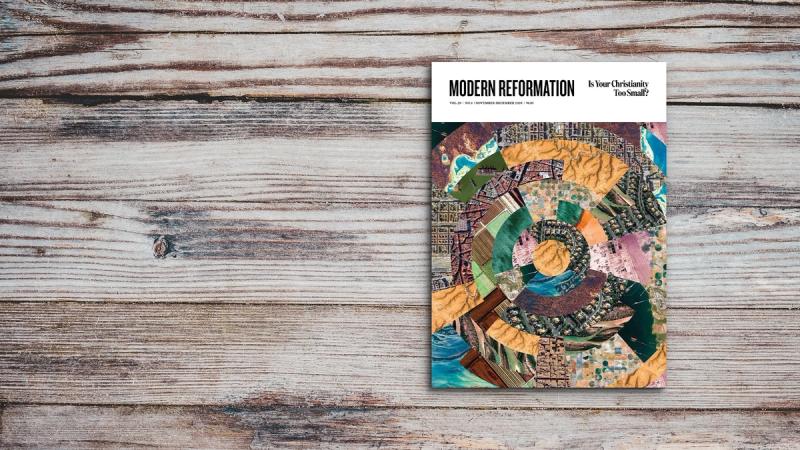What a year 2020 has proven to be. Such “normal” issues that American evangelicals have had to face over the last half century or so—moral decline attended by the subsequent propagation of naive utopian solutions, increasing political polarity, a diminishing public square, social fragmentation, a deteriorating educational system, rising fear and anxiety—seem to have wildly intensified in an election year coupled with a health pandemic of global proportions.
It is especially in tumultuous times that the tendency to develop tunnel vision looms large. It’s a very interesting phenomenon. At the same time that we have access to staggering amounts of data from all over the world at the scroll of a finger, we tend to see the issues in our own neck of the woods as if they were the only issues in all the world. We end this tumultuous year, then, with an always important but especially timely question: Is your Christianity too small?
In our first feature article, Michael McClymond, professor of Modern Christianity, offers an in-depth overview of scholarly findings in the field of World Christianity. Drawing upon this research, McClymond surveys a worldwide phenomenon that he calls.”gospel multiculturalism”. This gospel multiculturalism alone, he argues, offers the prospect of uniting all humanity in one community without suppressing or expunging the legitimate diversity of human cultures, languages, races, and peoples.
In fragmented times such as our own, the church feels a poignant longing for wholeness. Scott Swain, professor of systematic theology and president of RTS in Orlando, helps us think through this longing in his article, “Retrieving Catholicity.” Because catholicity (wholeness) is, as he puts it, both gift and task, it is good to remind ourselves in times like these that God has given to the American church the gift of the church worldwide—American evangelicalism is not, after all, the universal church—and the task of learning from it and joining with it.
Part of that task, of course, involves thinking carefully about the unique truth-claims of the Christian gospel. John Warwick Montgomery helps us with this task, clearly defining the dividing lines between the Christian faith and Confucianism.
With this issue, we invite you to think bigger thoughts about the church, the world, and the God of both—indeed, the kind of thoughts to which God himself invites us. We may develop tunnel vision, but God’s vision is always and never less than cosmic (Col. 1:15-20).
Joshua Schendel executive editor







